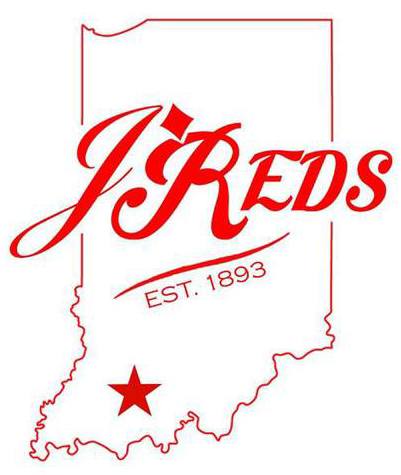
By STEVE KRAH
http://www.IndianaRBI.com
There was plenty of remembering going on April 30 as the Jasper (Ind.) Reds hosted their semipro baseball reunion after two years off because of the COVID-19 pandemic.
Former players — including the Alles brothers (Bob, Tom, Bill and Jerry) — and many others gathered at the Jaycee Clubhouse in Jasper to tell stories and pour over table after table of memorabilia. There was also some talk about the 2022 season.
The Jasper Reds have fielded a team in Dubois County for all but a handful of summers dating back to 1893, making them one of the nation’s oldest active amateur teams.
The latest reunion was the 28th. The first was held in 1993, which was also the first year the Reds (29-11) qualified for the National Baseball Congress World Series in Wichita, Kan. The most-recent of seven visits was in 2019.
The 2018 Reds went to Louisville for the Bluegrass World Series, an event that featured several former big leaguers.
The 1893 team was called the Acmes. The next year the name was changed to Red Jackets and was eventually shortened to Reds (they were known as Jasper K of C when the Knights of Columbus sponsored the team in the early 1920’s).
Five Alles boys were represented at the 2022 reunion, including Joe. They are the sons of the late Jerome “Chick” Alles and wife Annie Alles.
Chick played for the Jasper Reds 1950-63 and was later served three terms as the town’s mayor. He died in 2016 at 90 — two years after the passing of his wife at 88. Chick and Annie also had two daughters — Bev and Eve.
Bob, Tom, Bill and Jerry were Reds teammates and in the lineup together, which a caption under a photo from 1978 proclaims.
Bob Alles managed 20 straight seasons (1974-93) and came back for one (1996). He now serves as the business manager/general manager. He makes out the schedule, recruits the players and hires the umpires can usually be found in the dugout on gameday.
According to a profile in the book, “Baseball Play America” by Don Weisskopf, the Jasper Reds were close to folding in 1974. College sophomore Bob Alles took on manager duties and recording many winning seasons.
Tom Alles, who recently turned 65, played until he was 37. He serves as team historian (he wrote a 10-part series as the team approached its centennial in 1993 in which he noted that organized baseball came to Jasper in 1868; he also located a clip where the Hodges brothers — Gil and Bob — played for the Reds in 1942 with their last name lacking a “s” in the newspaper account) and has chased his share of foul balls. Gil Hodges grew up nearby in Princeton and Petersburg. He is going into the National Baseball Hall of Fame this summer.
“I played 20 years and I loved every minute of it,” says Tom Alles. “I don’t mind saying I cried like a baby when i knew I couldn’t play anymore.”
Bill Alles took over as Jasper Reds manager in the late 1990’s. In the history of the Jasper Reds, only two men — Bob and Bill Alles — have managed for more than three consecutive seasons. Some of them had multiple short stints.
“We try to combine winning with fun,” says Bill Alles. “Nobody’s going to be running laps after a game.”
Jerry Alles was a Jasper Reds batboy at a young age played for the team from the late ’70s to the mid ’90s. He played at Jasper High for Ray Howard, who went on to enter the Indiana Baseball Hall of Fame and is the director of the hall’s collection on display at Vincennes University-Jasper. He also provides color on Jasper baseball broadcasts on WITZ AM/FM. Walt Ferber is the play-by-play man.
“I was very fortunate (to play for Howard),” says Jerry Alles. “We practiced long and hard. He would never dress you down on the field.”
Building the roster starts with the previous year’s team.
“They are always welcome back and long as they are reliable,” says Bob Alles. “It didn’t matter if they were not the best player in the world if they were reliable and would show up.”
Alles also reaches out to some of his coaching contacts, including at the junior college level.
“I always stress that it has to be the player (making the decision to join the Reds),” says Bob Alles. “It can’t be his dad. It can’t be his coach. It can’t be us because it’s going to be hot, it’s going to take some time — we played doubleheaders — and there’s been a lot of people in the stands.”
Other than an out-of-town tournament, most of the Reds games — about 20 in June and July — are played in Jasper.
“We have a good field. We pay the umpires and we buy good baseballs (and the price has risen about $12 to $15 a dozen in the past year). A lot of teams will come in for that.”
Bob Alles has been a stickler for quality baseballs for a long time now and will take them to road games, offering them if the home team is using an inferior sphere.
In a baseball-crazy community, Alles sees the Reds continue to receive support.
“It takes a lot to people, donating money and doing a lot of little things.”
There’s purchasing uniforms and liability insurance.
Terry Gobert, who coached Jasper High to the 2021 IHSAA Class 4A state championship and is an Indiana High School Baseball Hall of Famer and Jasper American Legion Post 147 manager, has been known to cut the field on an early weekend morning before the Reds play.
The Jasper Reds have been in various leagues or their lengthy history, but now they play an independent schedule. There’s no league pennant to play for, but the teams wants to — and does — consistently win.
The last regular-season loss came in 2017 against the St. Louis Pros in Jasper.
Recently, most Jasper Reds players have been 22 or younger with many in college or coming off their high school seasons.
“We love it when some guys beyond college stay,” says Tom Alles. “There’s still that thing of experience and having somebody older around that’s been through a little bit more and can be a good influence on the younger players.”
Since 1942, the Jasper Reds have shared Recreation Field — given that name because of the recreation program ran on those grounds by Cabby O’Neill — with Jasper High School teams.
It’s been known as Alvin C. Ruxer Field since 1991. Local businessman and one-time Jasper Reds pitcher Ruxer was a baseball benefactor.
According to “Baseball Play America,” Ruxer The one-time Jasper Reds pitcher set up two $10,000 trust funds for the team in 1981.
The 2022 Jasper Reds season is to open the first weekend in June with early games on the junior varsity diamond at Jasper High since Ruxer Field will be used for IHSAA regional and semistate play.
A year ago, the Reds played in the College Division (22U) of the National Amateur Baseball Federation tournament and will return in 2022. The regional is to be staged in Fort Wayne.
The NABF World Series July 28-31 in Sandusky, Ohio. But going to that would be a considerable expense.
“I did some computing and it would be over $6,000 just for hotels,” says Bob Alles. “That’s a lot of money and I don’t know if we can justify that.”
The team will wear a memorial patch to honor Jacob Crabtree, who was killed in a automobile accident in November 2021 at 19.
The graduate of Daviess County High School in Owensboro, Ky., was a sophomore at Brescia University in Owensboro, where he was on the baseball team and studying to be a physical therapist. He hit .314 for the 2021 Jasper Reds.
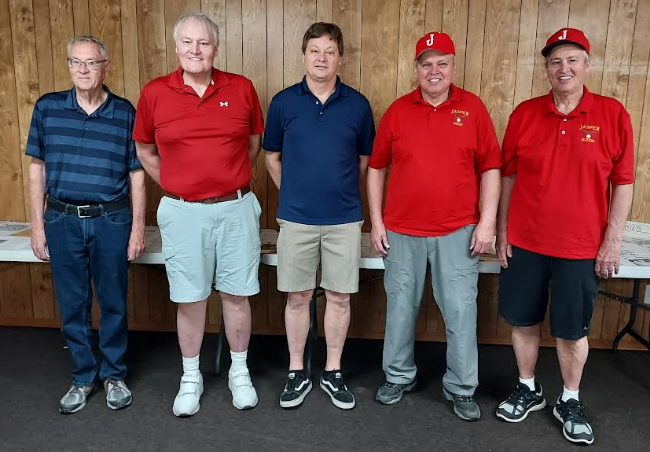
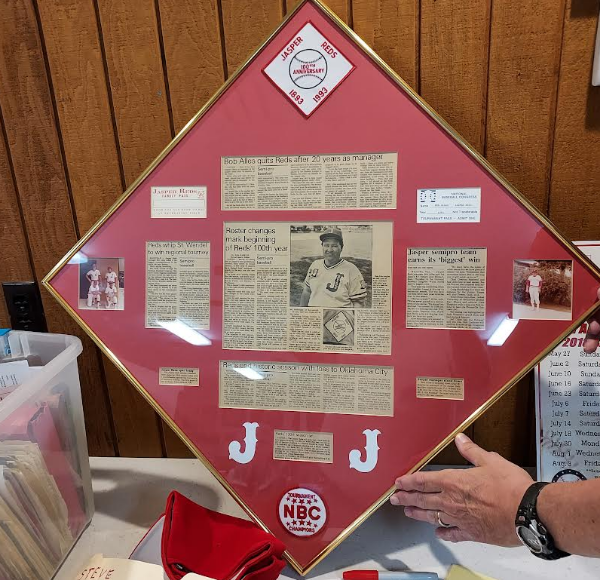

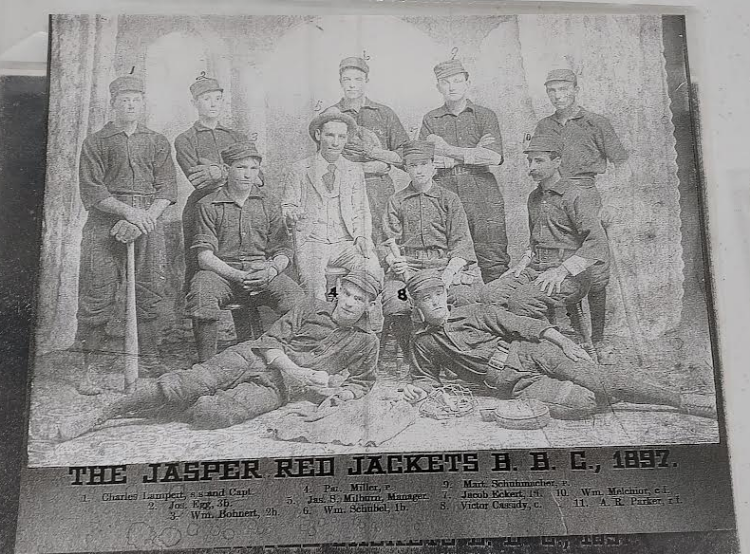
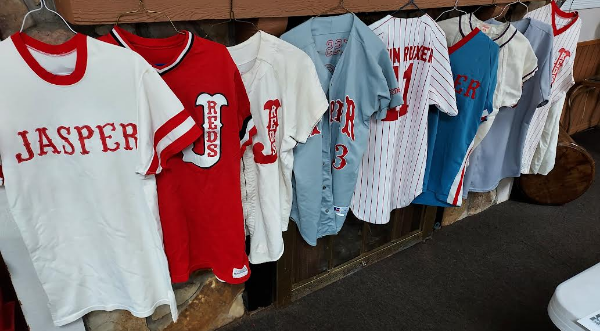
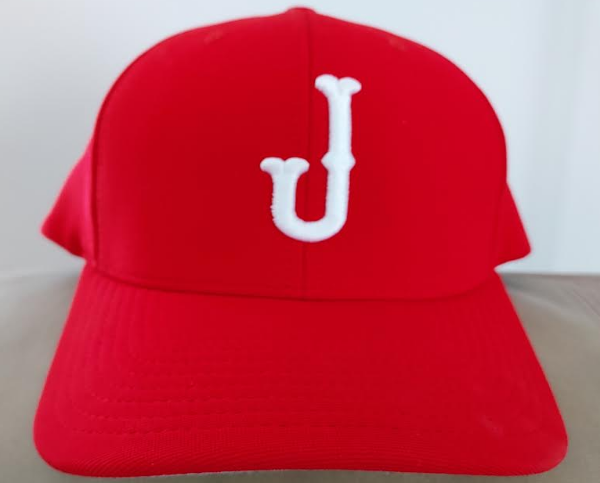
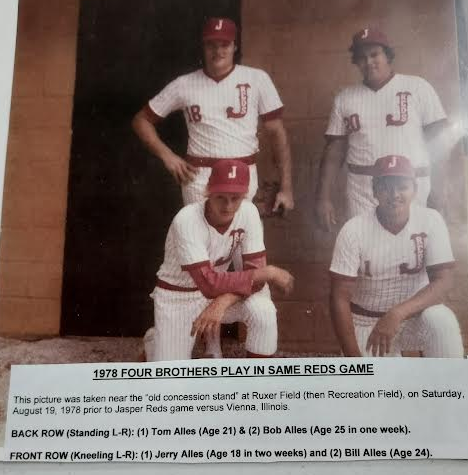
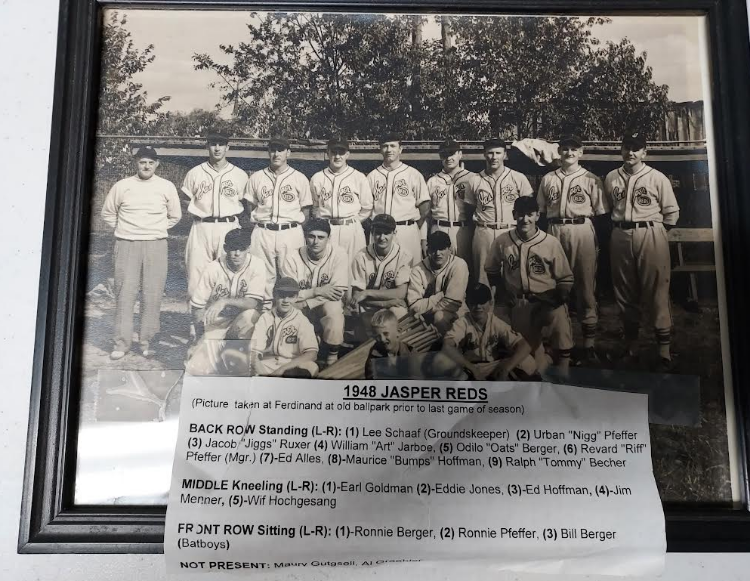
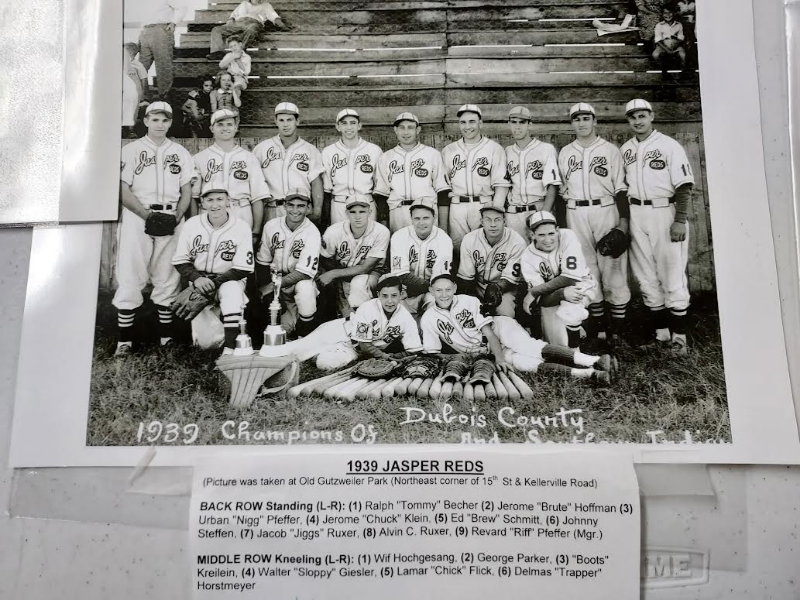
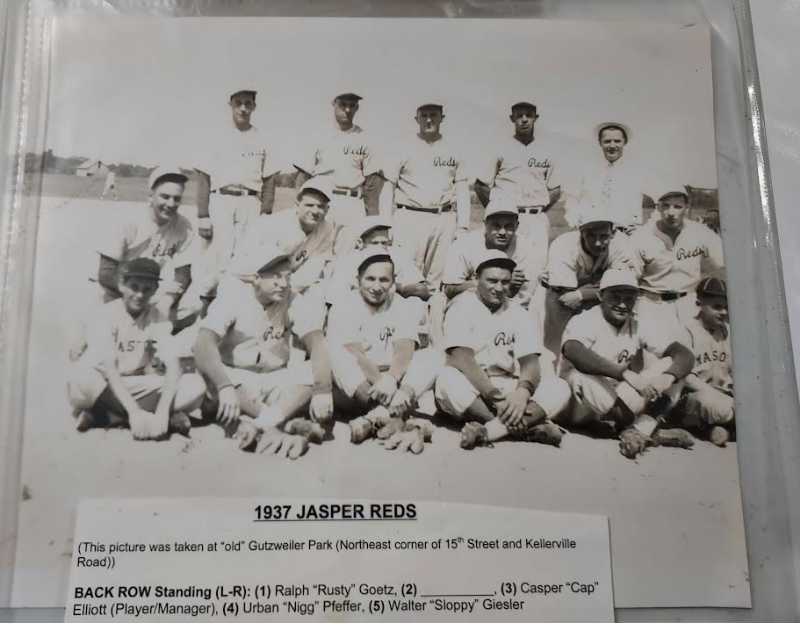
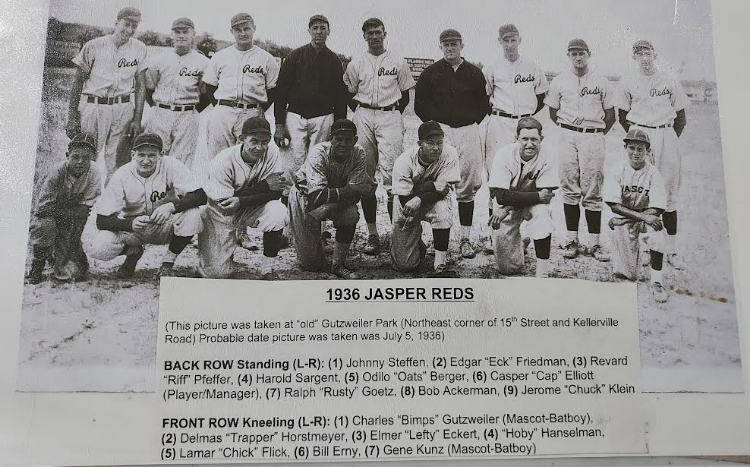
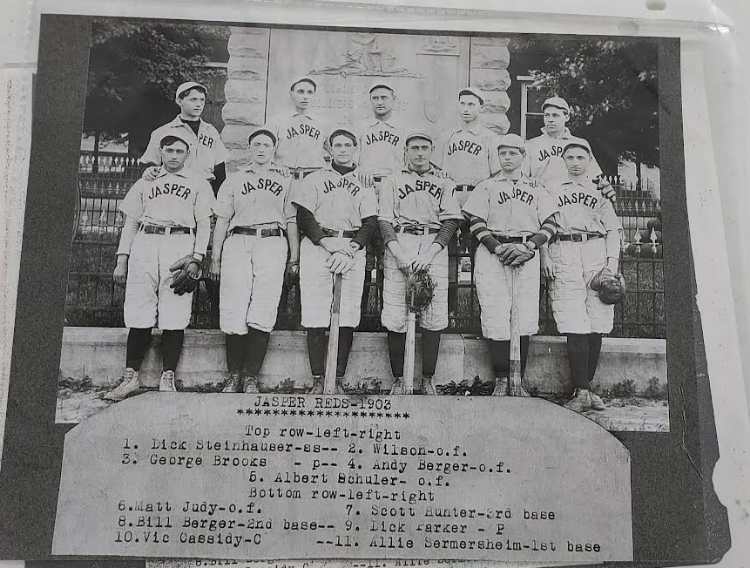
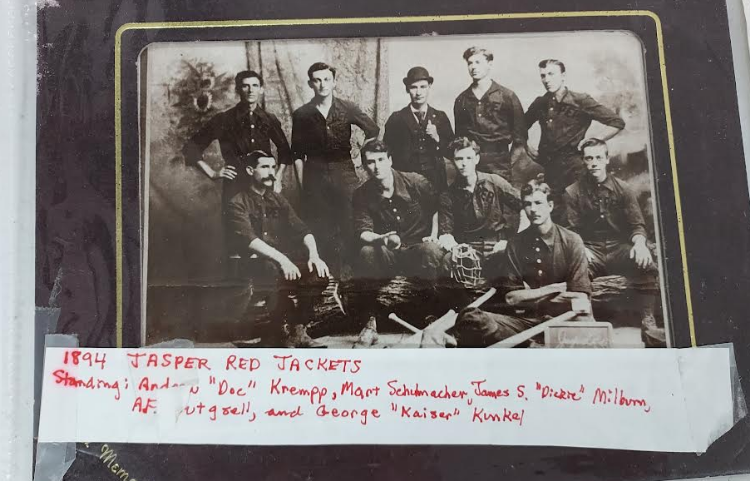
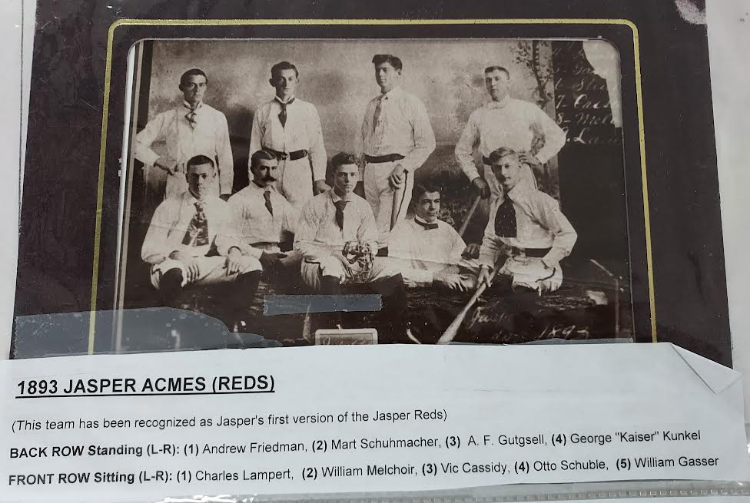
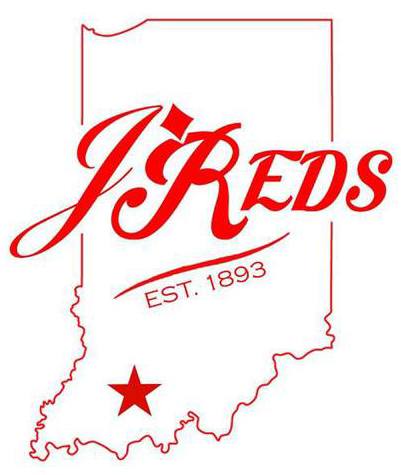

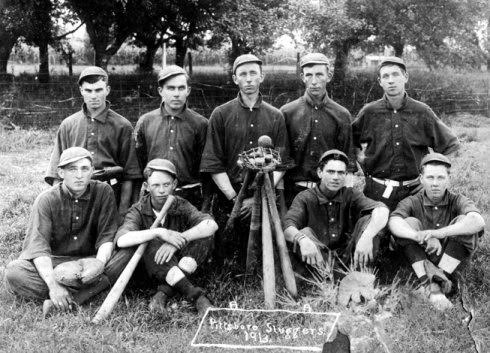
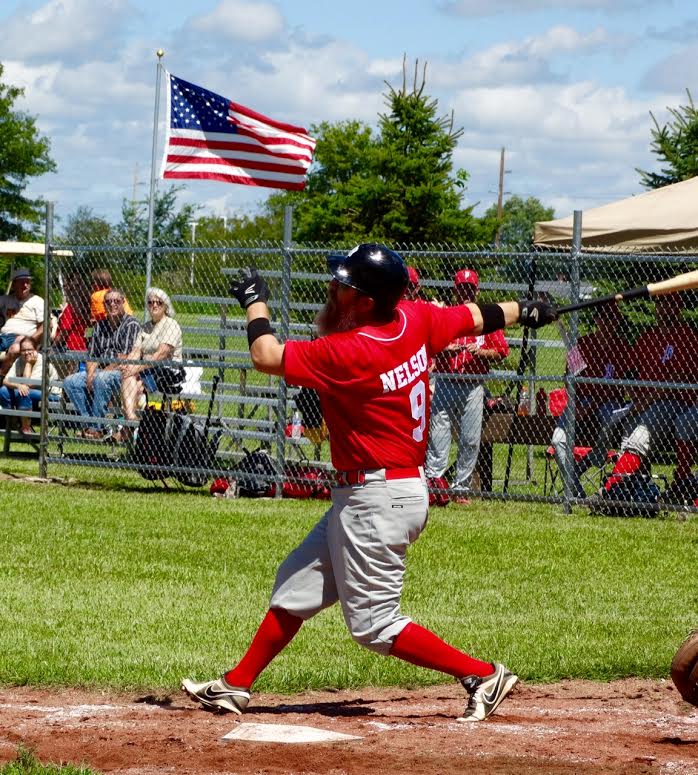
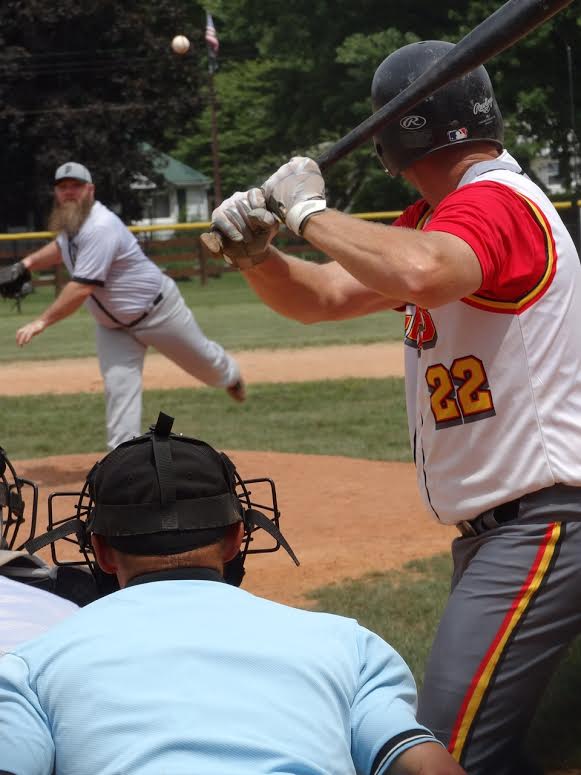
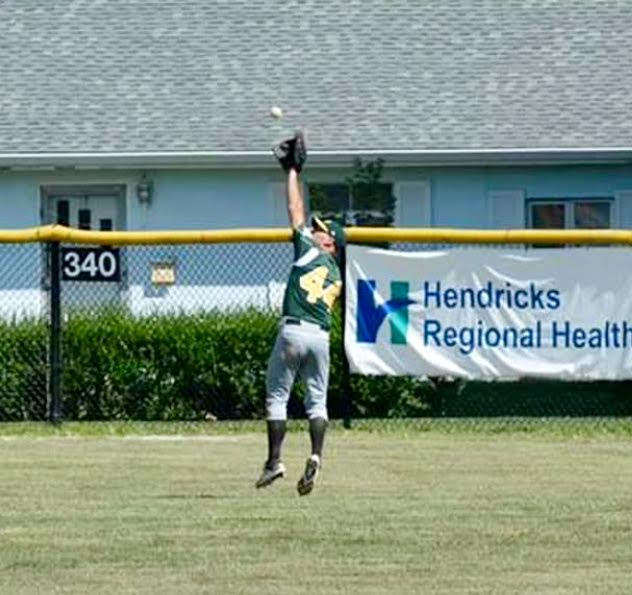
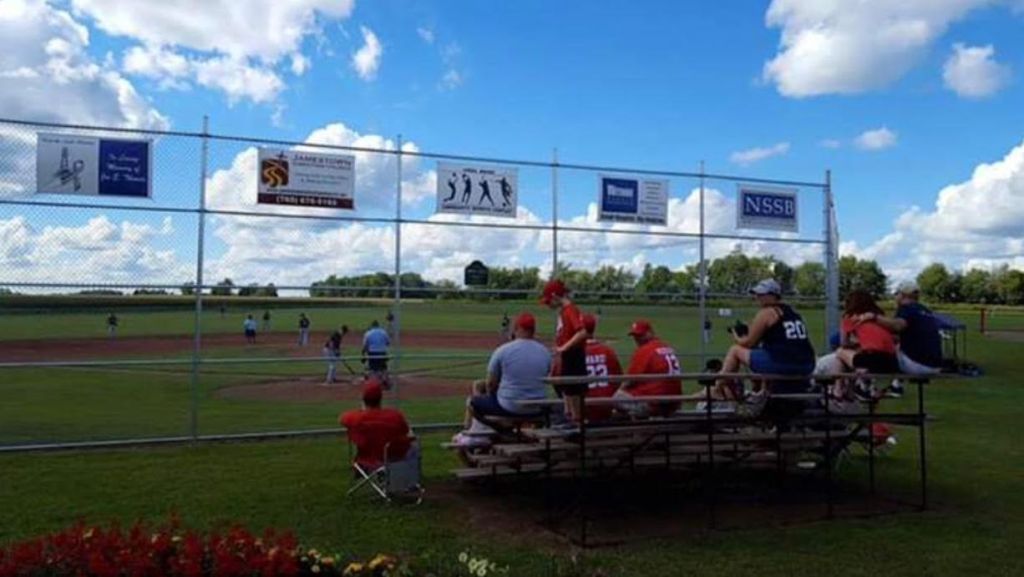
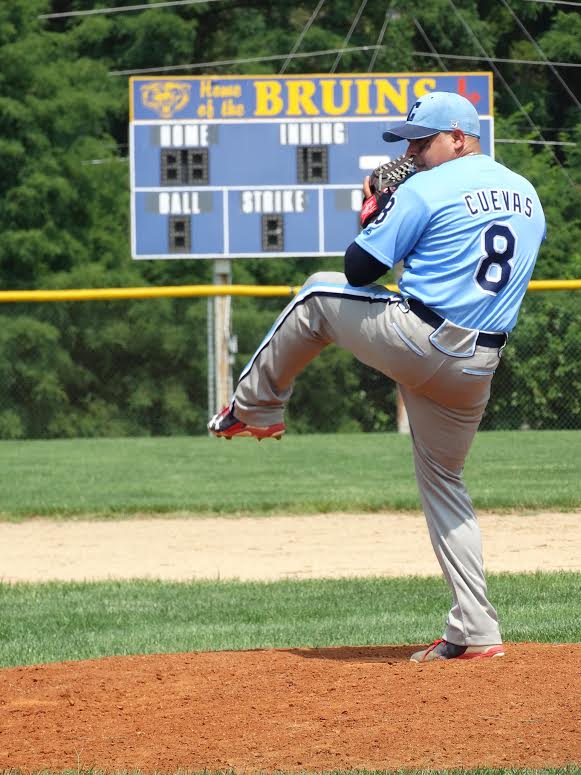
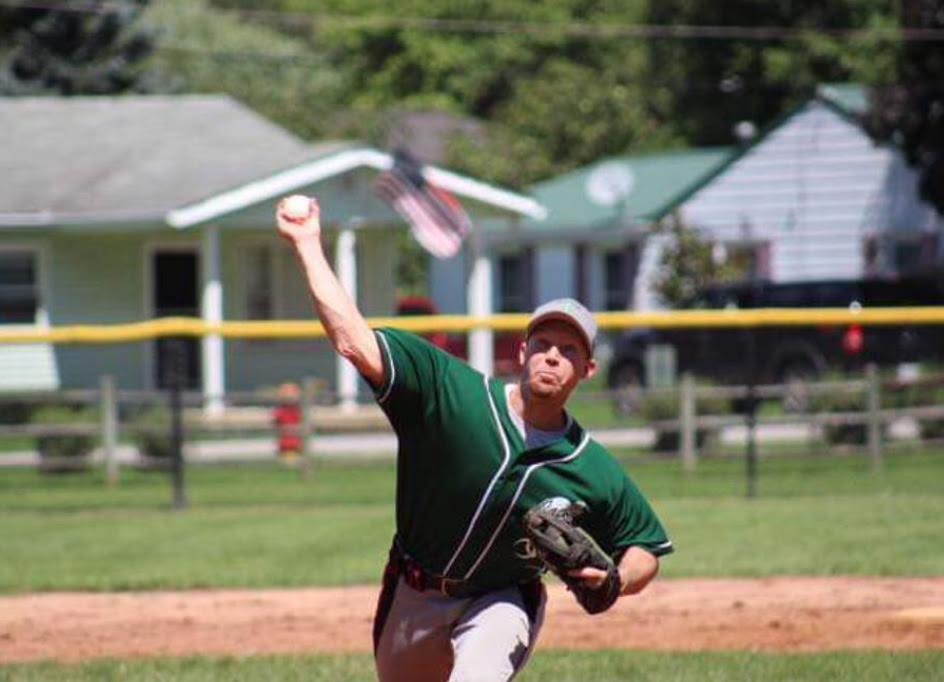
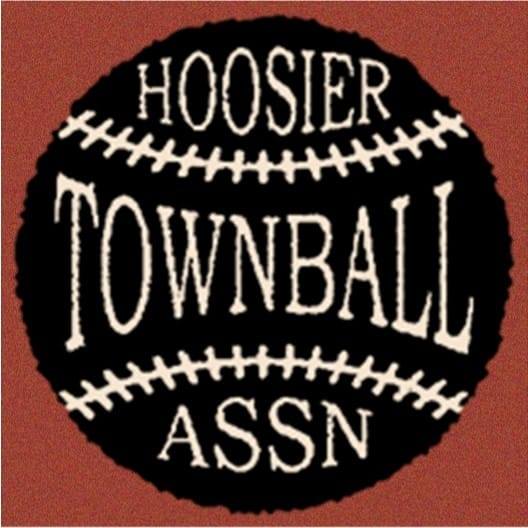

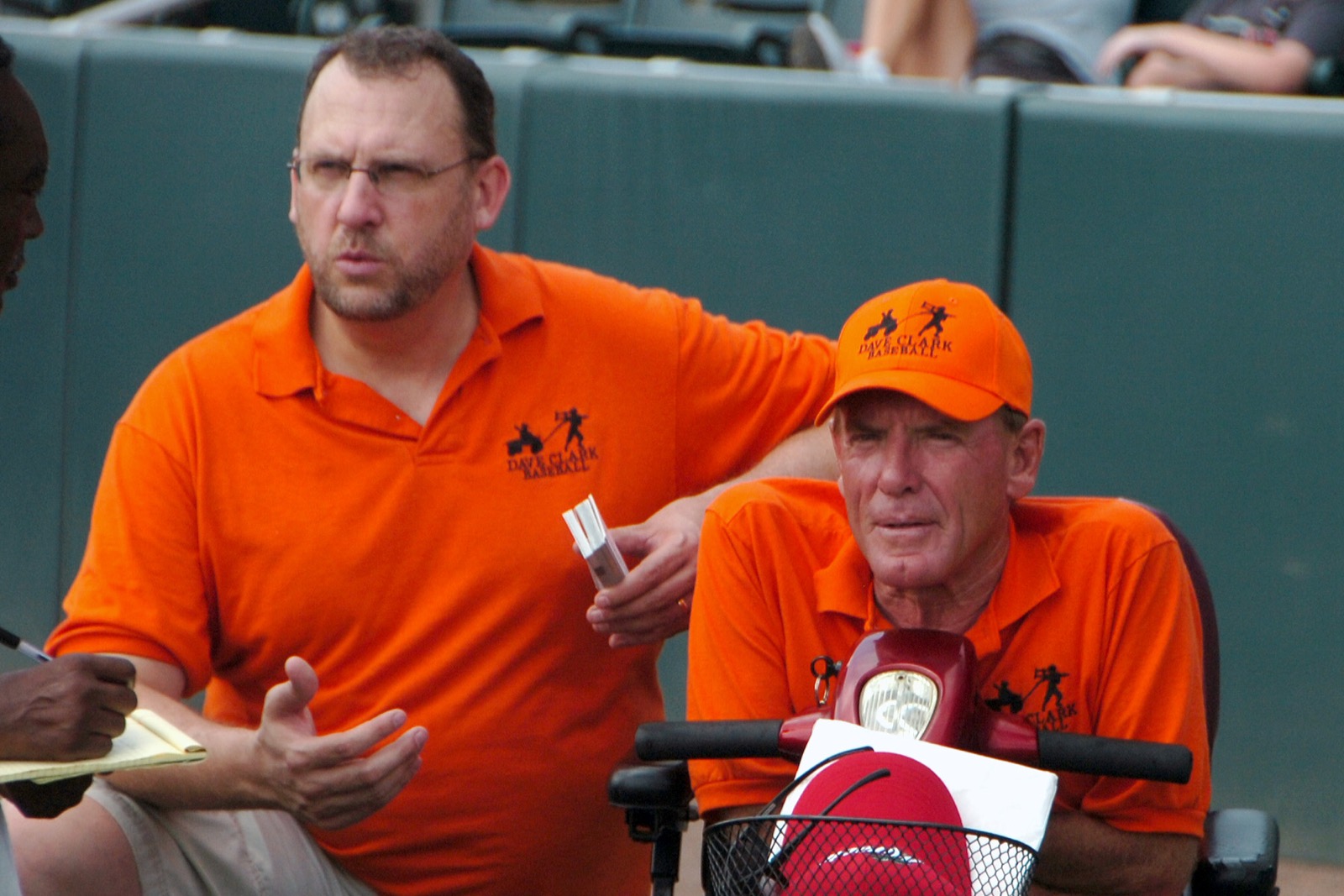
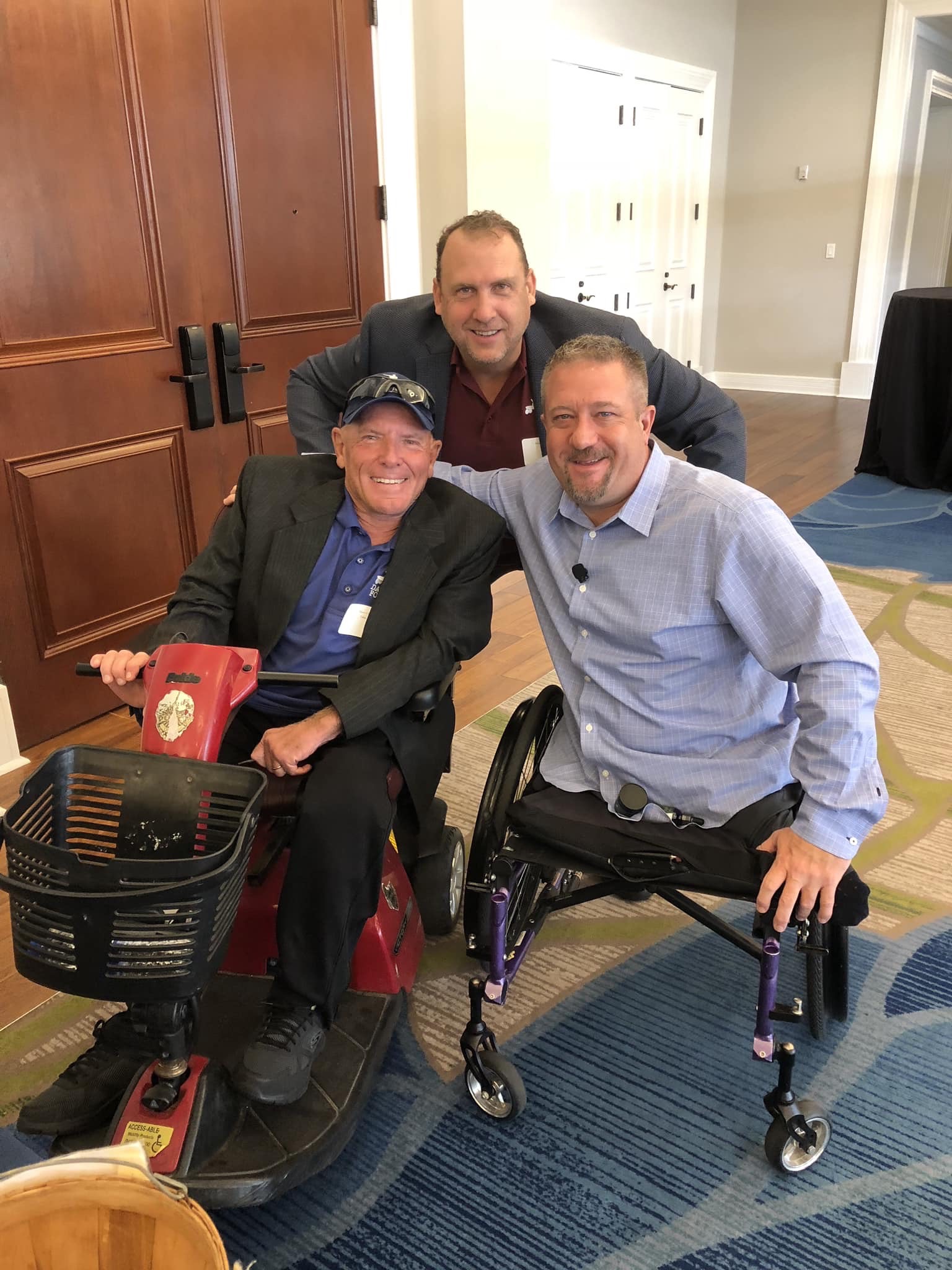 Dave Clark (left), Doug Cornfield and Dave Stevens make appearances all over the country on behalf of those with perceived physical and mental limitations.
Dave Clark (left), Doug Cornfield and Dave Stevens make appearances all over the country on behalf of those with perceived physical and mental limitations.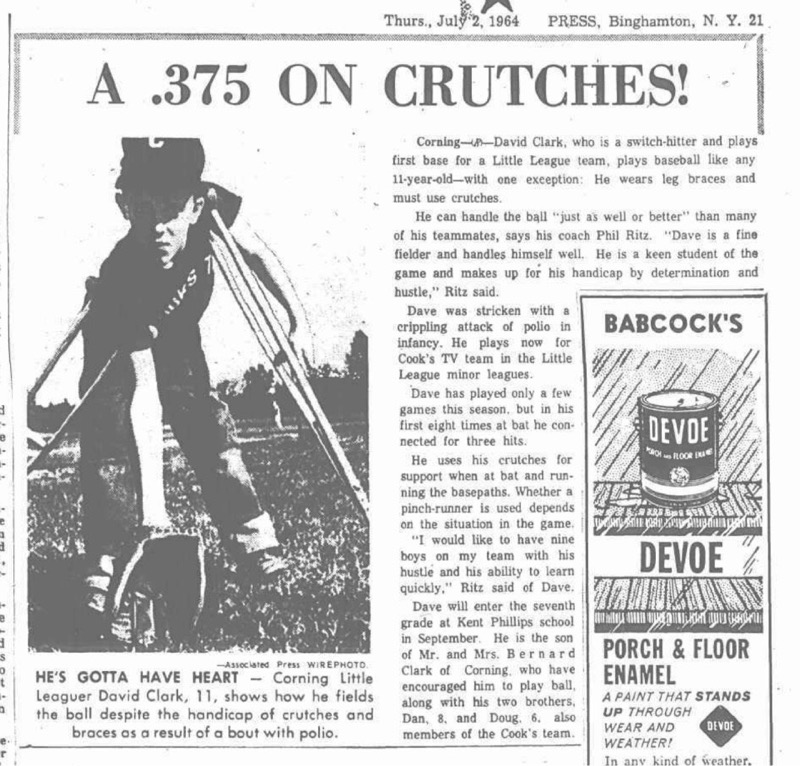 Dave Clark, who contracted polio at 10 months, got early attention for his abilities as a baseball player.
Dave Clark, who contracted polio at 10 months, got early attention for his abilities as a baseball player.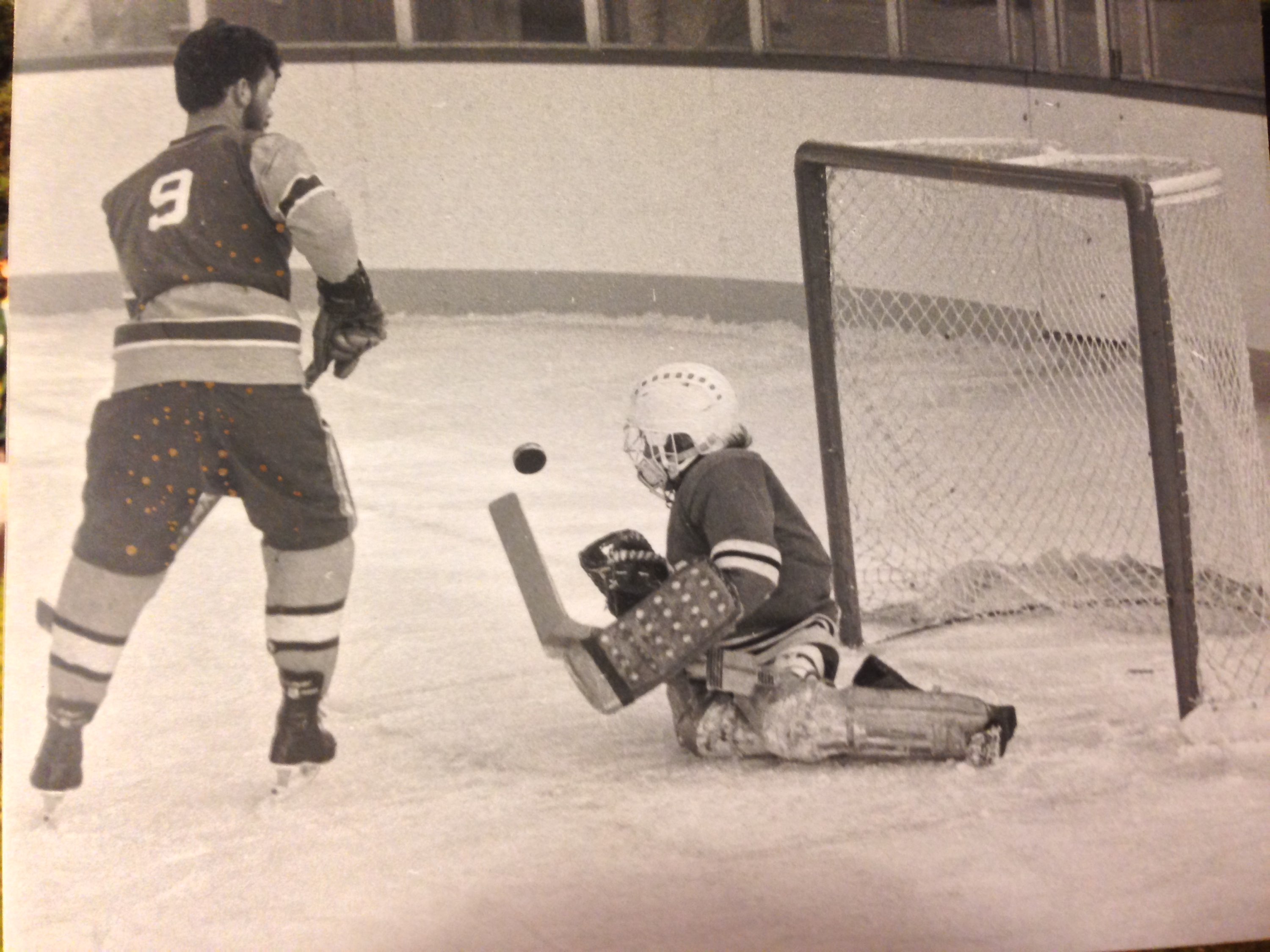 Dave Clark has even taken to the ice as a hockey goalie.
Dave Clark has even taken to the ice as a hockey goalie.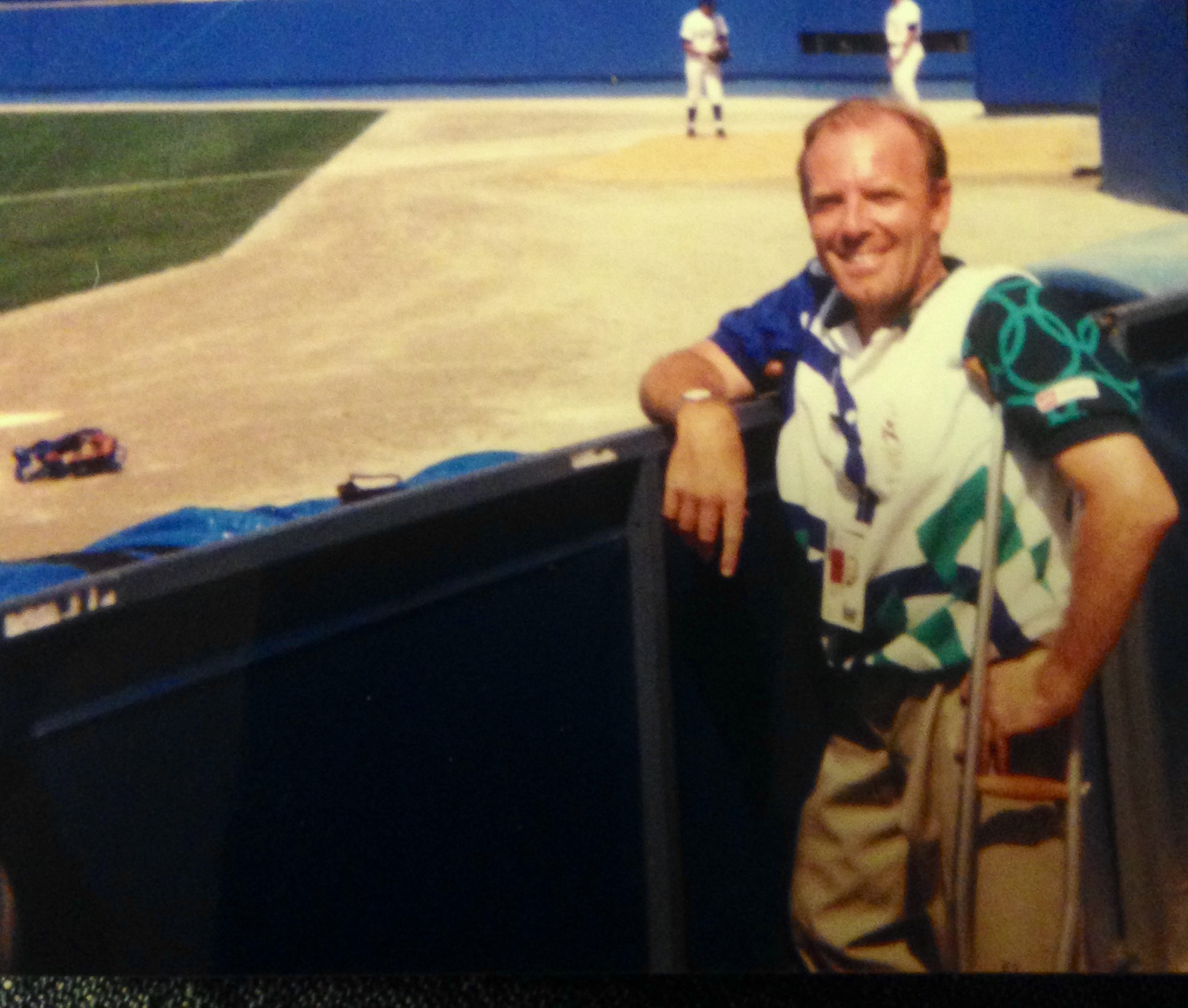 Dave Clark was affiliated with Team USA Baseball during the 1996 Atlanta Olympics.
Dave Clark was affiliated with Team USA Baseball during the 1996 Atlanta Olympics.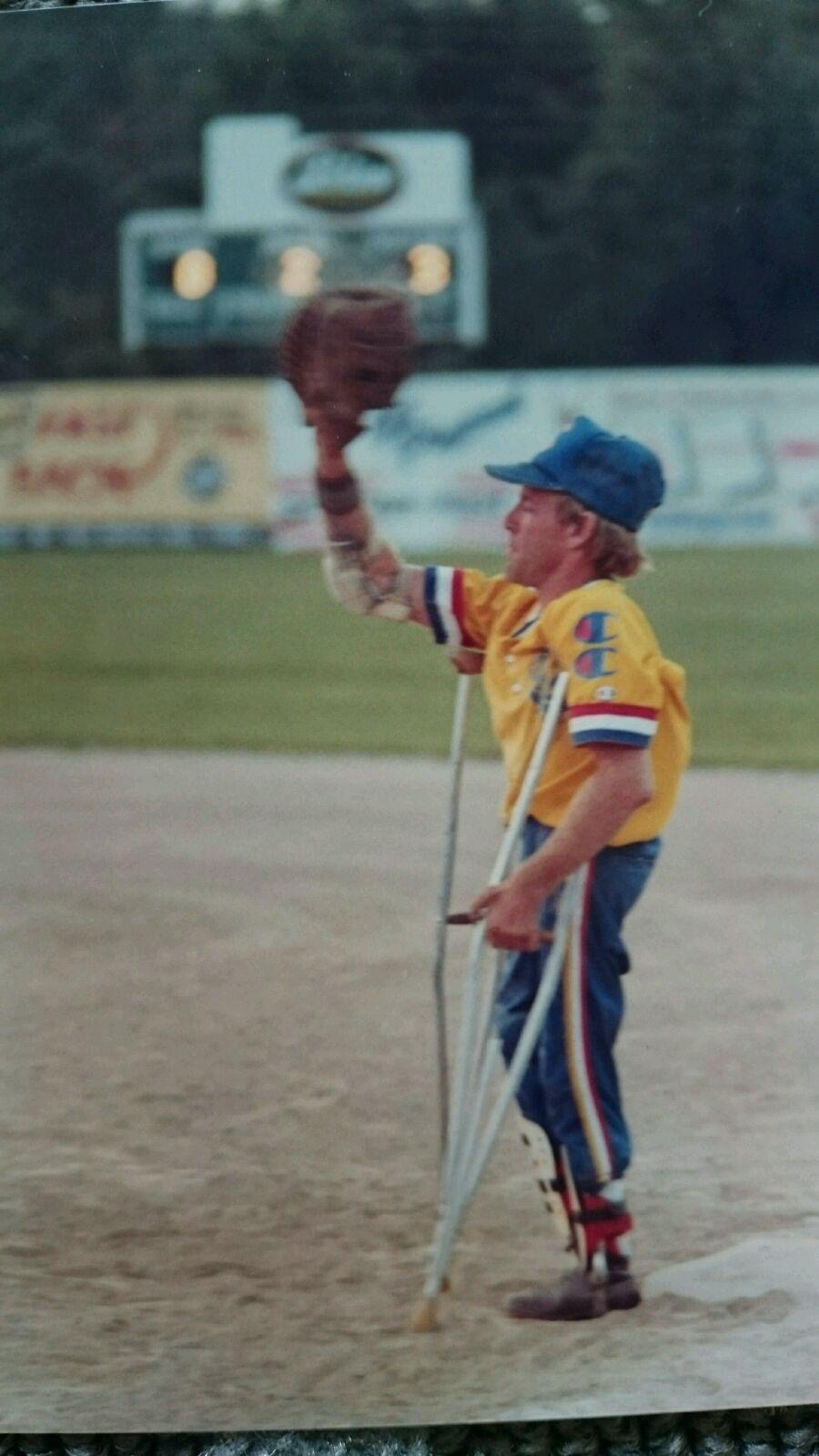 Dave Clark, using crutches and braces, was a player and owner for the Indianapolis Clowns.
Dave Clark, using crutches and braces, was a player and owner for the Indianapolis Clowns.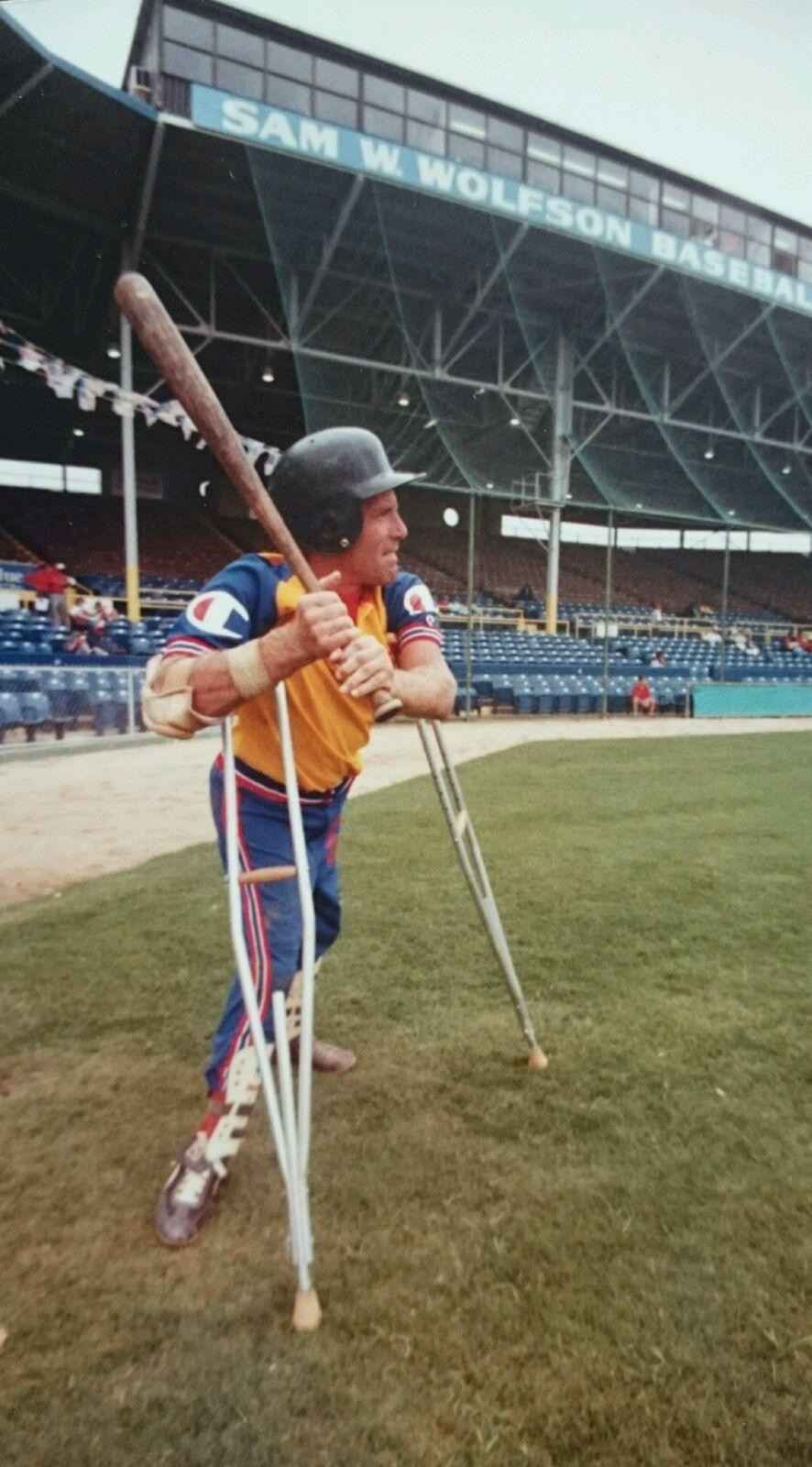
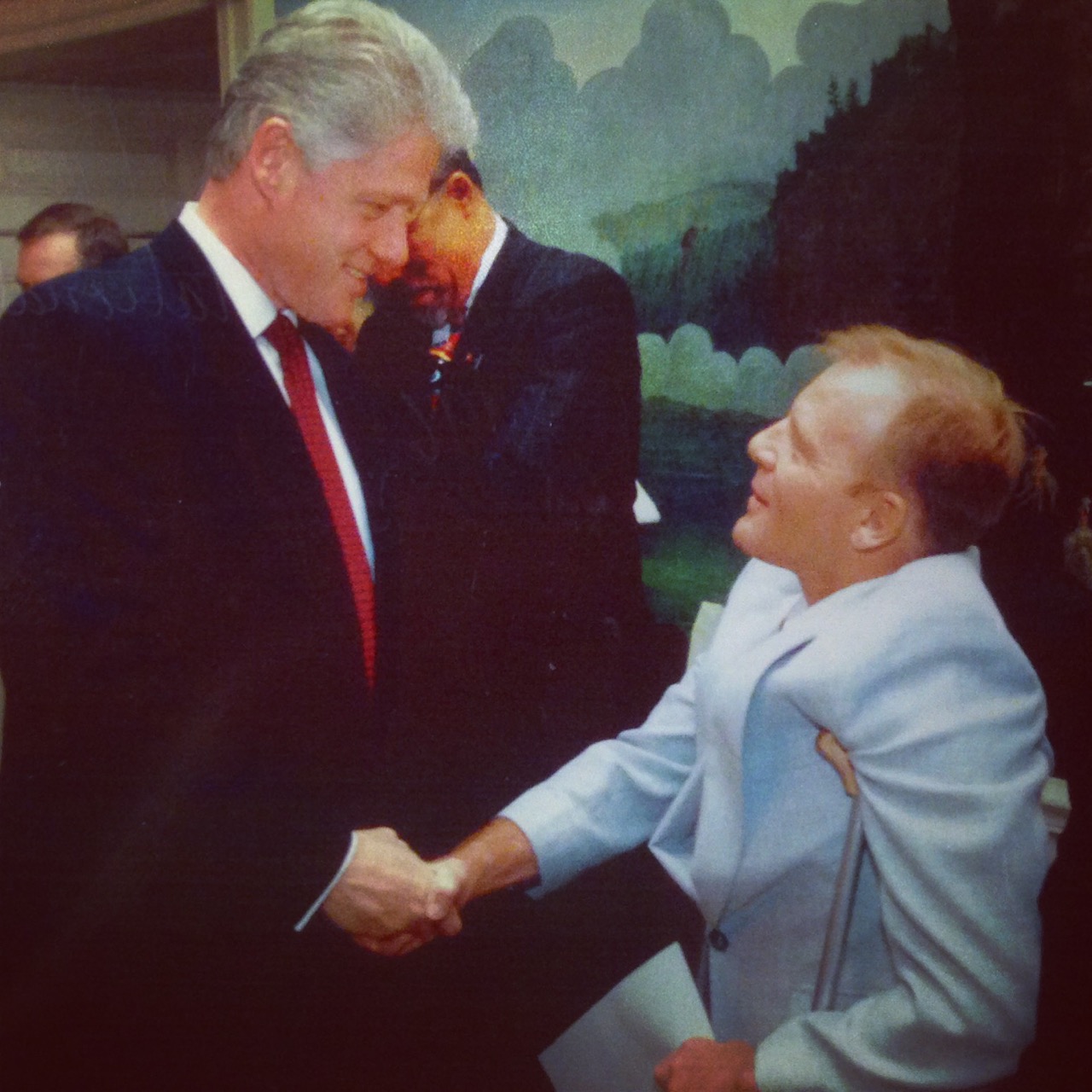 President Bill Clinton (left) presents Dave Clark with the National Giant Steps Award.
President Bill Clinton (left) presents Dave Clark with the National Giant Steps Award.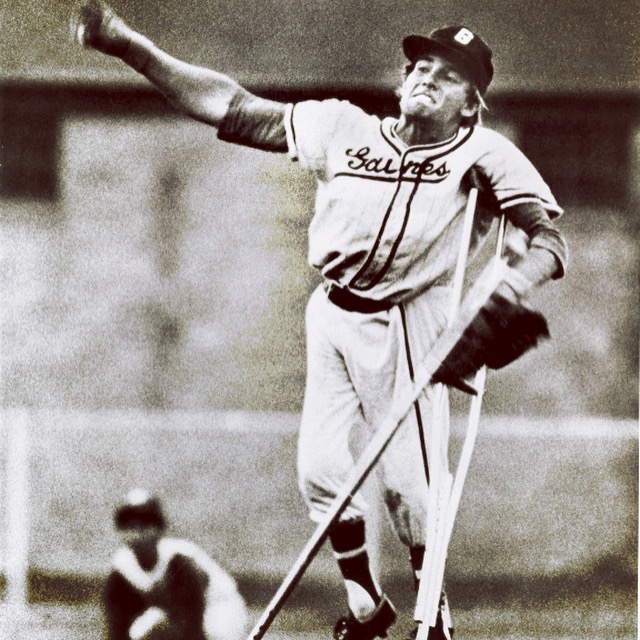
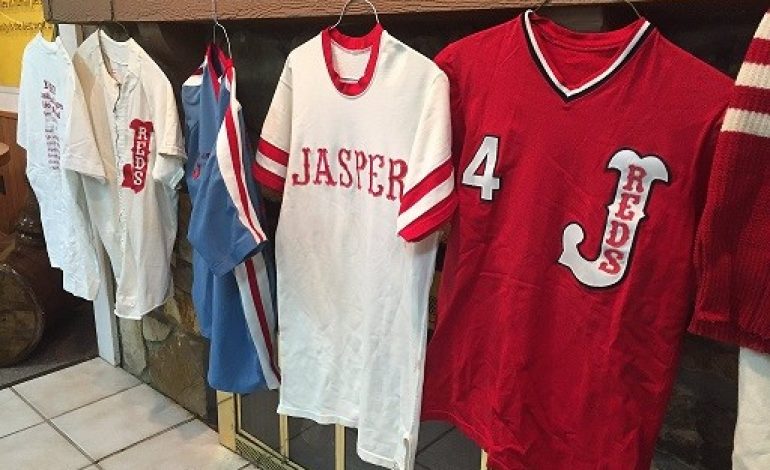 The Jasper (Ind.) Reds have been on the baseball scene since 1893 and have worn many styles of uniforms. Here are a few. (Jasper Reds Photo)
The Jasper (Ind.) Reds have been on the baseball scene since 1893 and have worn many styles of uniforms. Here are a few. (Jasper Reds Photo)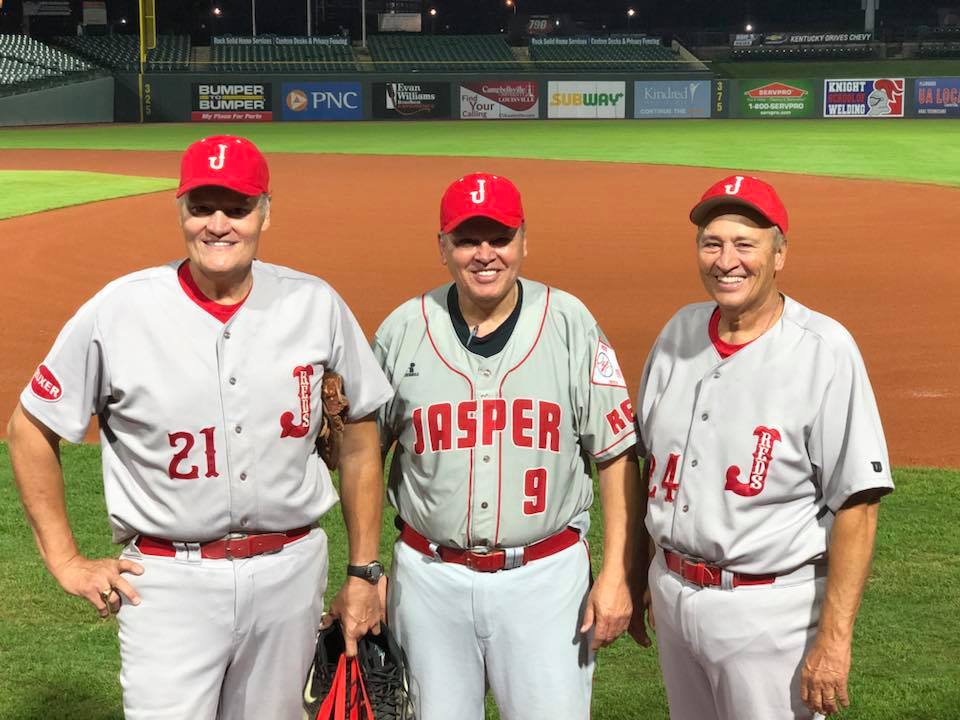 The Alles family has long represented the Jasper (Ind.) Reds baseball team. Here is Tom (left), Bill and Bob. (Jasper Reds Photo)
The Alles family has long represented the Jasper (Ind.) Reds baseball team. Here is Tom (left), Bill and Bob. (Jasper Reds Photo)